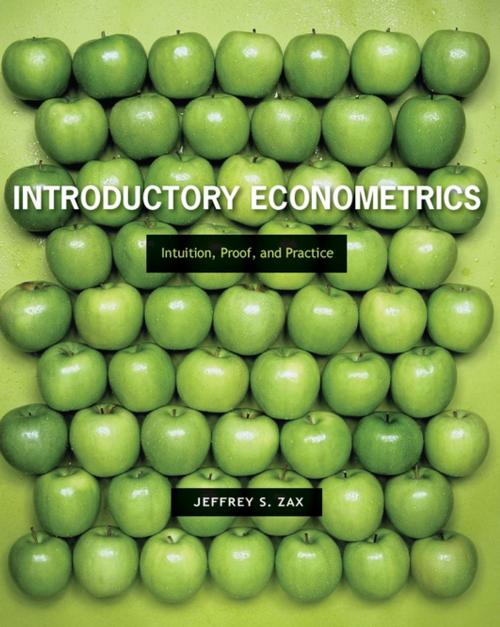| Author: | Jeffrey Zax | ISBN: | 9780804777209 |
| Publisher: | Stanford University Press | Publication: | March 31, 2011 |
| Imprint: | Stanford Economics and Finance | Language: | English |
| Author: | Jeffrey Zax |
| ISBN: | 9780804777209 |
| Publisher: | Stanford University Press |
| Publication: | March 31, 2011 |
| Imprint: | Stanford Economics and Finance |
| Language: | English |
Introductory Econometrics: Intuition, Proof, and Practice attempts to distill econometrics into a form that preserves its essence, but that is acceptable—and even appealing—to the student's intellectual palate. This book insists on rigor when it is essential, but it emphasizes intuition and seizes upon entertainment wherever possible. Introductory Econometrics is motivated by three beliefs. First, students are, perhaps despite themselves, interested in questions that only econometrics can answer. Second, through these answers, they can come to understand, appreciate, and even enjoy the enterprise of econometrics. Third, this text, which presents select innovations in presentation and practice, can provoke readers' interest and encourage the responsible and insightful application of econometric techniques. In particular, author Jeffrey S. Zax gives readers many opportunities to practice proofs—which are challenging, but which he has found to improve student comprehension. Learning from proofs gives readers an organic understanding of the message behind the numbers, a message that will benefit them as they come across statistics in their daily lives. An ideal core text for foundational econometrics courses, this book is appropriate for any student with a solid understanding of basic algebra—and a willingness to use that tool to investigate complicated issues.
Introductory Econometrics: Intuition, Proof, and Practice attempts to distill econometrics into a form that preserves its essence, but that is acceptable—and even appealing—to the student's intellectual palate. This book insists on rigor when it is essential, but it emphasizes intuition and seizes upon entertainment wherever possible. Introductory Econometrics is motivated by three beliefs. First, students are, perhaps despite themselves, interested in questions that only econometrics can answer. Second, through these answers, they can come to understand, appreciate, and even enjoy the enterprise of econometrics. Third, this text, which presents select innovations in presentation and practice, can provoke readers' interest and encourage the responsible and insightful application of econometric techniques. In particular, author Jeffrey S. Zax gives readers many opportunities to practice proofs—which are challenging, but which he has found to improve student comprehension. Learning from proofs gives readers an organic understanding of the message behind the numbers, a message that will benefit them as they come across statistics in their daily lives. An ideal core text for foundational econometrics courses, this book is appropriate for any student with a solid understanding of basic algebra—and a willingness to use that tool to investigate complicated issues.















